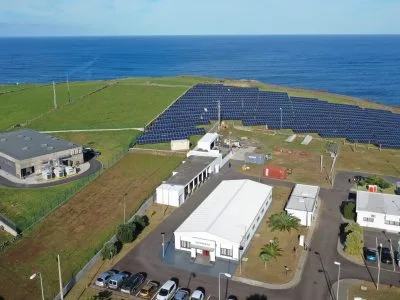Chinese Firm Wins Bid for A123
Wanxiang Group, a large Chinese auto parts maker, won a high-stakes auction on Sunday for assets of A123 Systems, the bankrupt American battery maker that was a centerpiece of the Obama administration’s loan program for electric vehicles.
A123, which filed for bankruptcy in October after chronic losses and a damaging battery recall, said Wanxiang agreed to pay $256 million for its automotive and commercial operations, including its three factories in the United States.
But the sale excludes A123’s business with the United States government and its military contracts. That portion of the company will be sold to a small energy company based in Illinois, Navitas Systems, for $2.2 million.
From the start, some Republicans in Congress have opposed Wanxiang’s efforts to buy A123, which received a $249 million federal grant to spur domestic manufacturing of batteries.
The deal, which requires approval of a United States bankruptcy judge, would expand Wanxiang’s share of the global market for lithium-ion batteries used in new electric cars like the Fisker Karma.
The A123 sale is the latest in a series of acquisitions of North American energy and manufacturing companies by state-owned and privately held Chinese firms.
Wanxiang outbid three other companies in the auction conducted for the bankruptcy court by the Chicago law firm Latham & Watkins. One of the three, Johnson Controls, based in Wisconsin, had tried to buy A123 as it was entering bankruptcy.
But Wanxiang has been in aggressive pursuit of A123 since earlier this year, when the Chinese company first offered emergency loans to keep the failing battery maker afloat.
But the A123 deal is by far its most prominent and riskiest acquisition.
In addition to the approval of the bankruptcy judge, the deal requires the approval of the Committee on Foreign Investment in the United States, a broad-based group led by the Treasury Department that reviews foreign takeovers of American companies.
A123, which is based in Waltham, Mass., was once one of the most promising recipients of federal loans under the Obama administration’s $2 billion program to stimulate the electric-car industry in the United States.
But consumers have been slow to buy electric vehicles in large numbers, crippling any chance for A123 to make a profit. It also stumbled when its first big shipment of batteries to Fisker proved defective and needed to be recalled.
The company’s bankruptcy became a political issue in the recent presidential campaign, and its potential sale to Wanxiang has fueled concerns that China will benefit from technology developed with financing by American taxpayers.
The bankruptcy auction began last week, when Wanxiang, Johnson Controls, and the electronics makers NEC Corporation of Japan and Siemens AG of Germany submitted secret bids for A123’s assets.
The agreement announced by A123 on Sunday said that Wanxiang made the highest bid, but did not disclose the other offers.
According to the deal, Wanxiang would acquire A123’s automotive, electric-grid and commercial business assets, including all of its technology, products, customers, and factories in Michigan, Massachusetts and Missouri, which will continue to operate.
Wanxiang would also take control of A123’s fledgling operations in China, including its interest in a joint battery venture with Shanghai Automotive, the country’s biggest carmaker.
A123’s much smaller government division, which is concentrated in Michigan, will go to the little-known Navitas Systems.
If you want to know more about this and other topics directly from end users of energy storage technologies join us at one of these annual events: The Energy Storage World Forum (Grid Scale Applications), or The Residential Energy Storage Forum, or one of our Training Courses.



